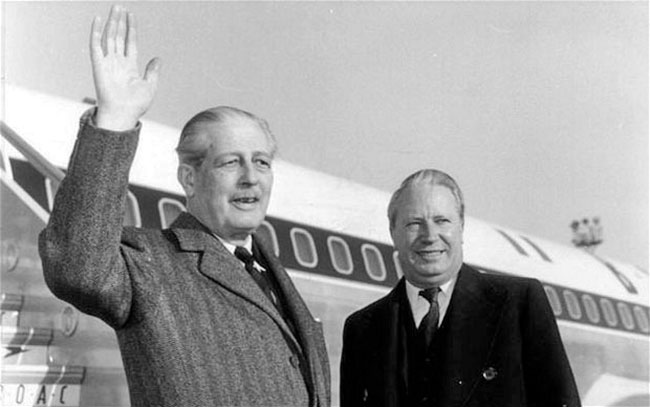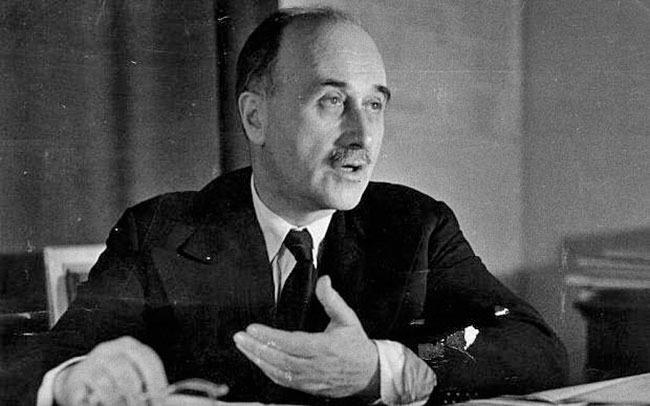|
from TheTelegraph Website
couldn't get a free-trade deal Photo: PA need to understand that the European Union was about building a federal super-state from day one..
It seems to me that most people have little idea why one of the victors of the Second World War should have become almost desperate to join this "club".
That's a shame, because
answering that question is key to understanding
why the EU has gone so wrong...
Others seem to believe that after the Second World War, Britain needed to recast her geopolitical position away from empire, and towards a more realistic one at the heart of Europe.
Neither of these arguments, however, makes any sense at all.
our annual growth rate was a record 7.4 per cent.
The present
Chancellor would die for such figures"
From Ludwig Erhard's supply-side reforms in West Germany in 1948 to Thatcher's privatization of nationalized industry in the Eighties, European growth came from reforms introduced by individual countries which were were copied elsewhere.
EU policy has always been either irrelevant or positively detrimental (as was the case with the euro). Nor did British growth ever really lag behind Europe's.
Sometimes it surged ahead.
In the 1950s Western Europe had a growth rate of 3.5 per cent; in the 1960s, it was 4.5 per cent.
But in 1959, when Harold Macmillan took office, the real annual growth rate of British GDP, according to the Office of National Statistics, was almost 6 per cent.
It was again almost 6 per
cent when
de Gaulle vetoed our first
application to join the EEC in 1963.
So the economic basket-case argument doesn't work.
Four of these countries held no international weight whatsoever.
Why would it want to enter the EEC?
were part of an intellectual tradition that saw the salvation of the world
in some form of
world government".
He was also a close acquaintance of Jean Monnet, who believed the same.
It was therefore Macmillan who became the representative of the European federalist movement in the British cabinet. In a speech in the House of Commons he even advocated a European Coal and Steel Community (ECSC) before the real thing had been announced.
He later arranged for a
Treaty of Association to be signed between the UK and the
ECSC, and it was he who ensured that a British representative was
sent to the Brussels negotiations following the
Messina Conference, which gave
birth to the EEC.
Then, when General de
Gaulle began to turn the EEC into a less federalist body, he took
the risk of submitting a full British membership application in the
hope of frustrating Gaullist ambitions.
who in 1956 was appointed president of the Action Committee for the United States of Europe.
Indeed, he was informed before the British Parliament of the terms in which the British approach to Europe would be framed. Despite advice from the Lord Chancellor, Lord Kilmuir, that membership would mean the end of British parliamentary sovereignty.
Macmillan deliberately misled the House of Commons - and practically everyone else, from Commonwealth statesmen to cabinet colleagues and the public - that merely minor commercial negotiations were involved.
He even tried to deceive de Gaulle that he was an anti-federalist and a close friend who would arrange for France, like Britain, to receive Polaris missiles from the Americans.
De Gaulle saw completely
through him and vetoed the British bid to enter.
Meanwhile the
Earl of Gosford, one of Macmillan's
foreign policy ministers in the House of Lords, actually informed
the House that the aim of the government's foreign policy was
world government...
was now committed to the creation of
a federal United
States of Europe"
The Anglo-American establishment was now committed to the creation of a federal United States of Europe. Today, this is still the case.
Powerful international lobbies are already at work attempting to prove that any return to democratic self-government on the part of Britain will spell doom...
American officials have
already been primed to state that such a Britain would be excluded
from any free trade deal with the USA and that the world needs
the TTIP trade treaty which is
predicated on the survival of the EU.
The international coalition behind Macmillan and Heath will find things a lot more difficult this time round, especially given,
Most importantly, having
been fooled once, the British public will be much more difficult to
fool again.
|



